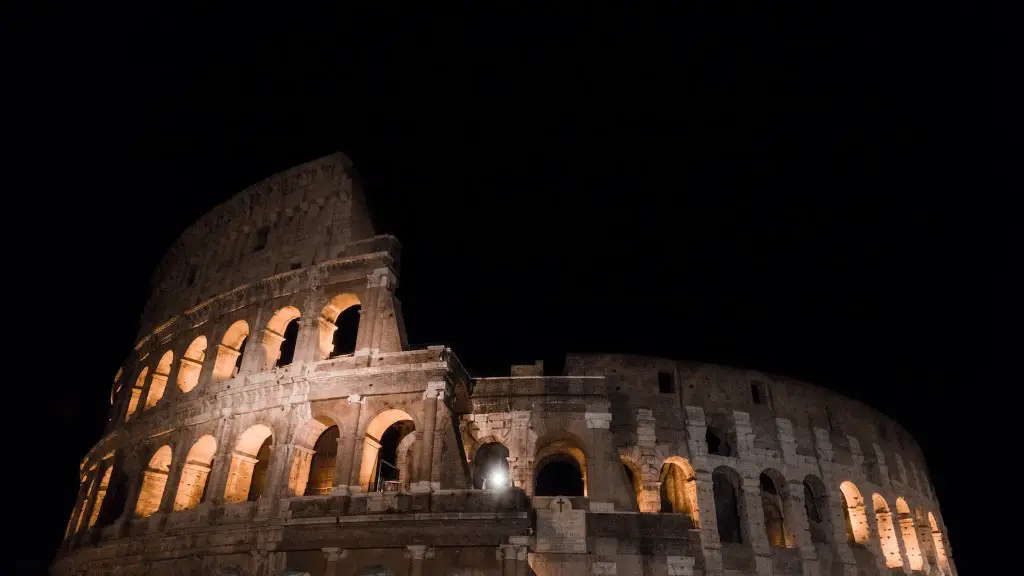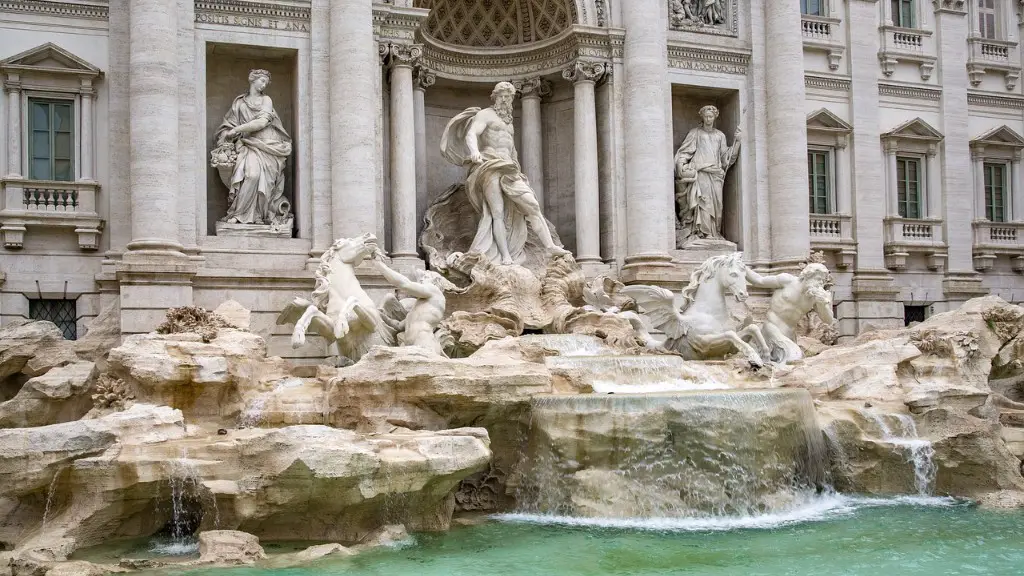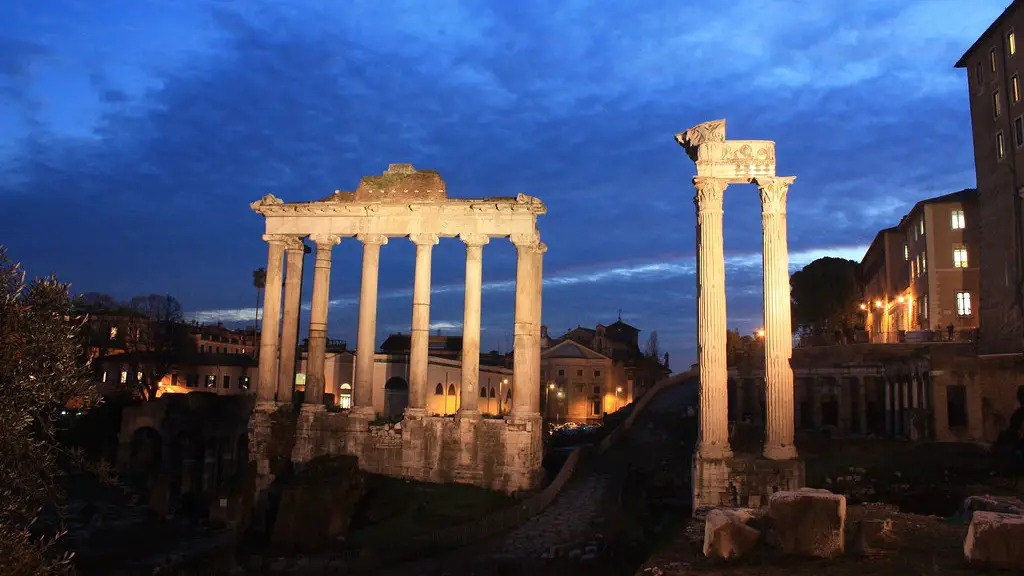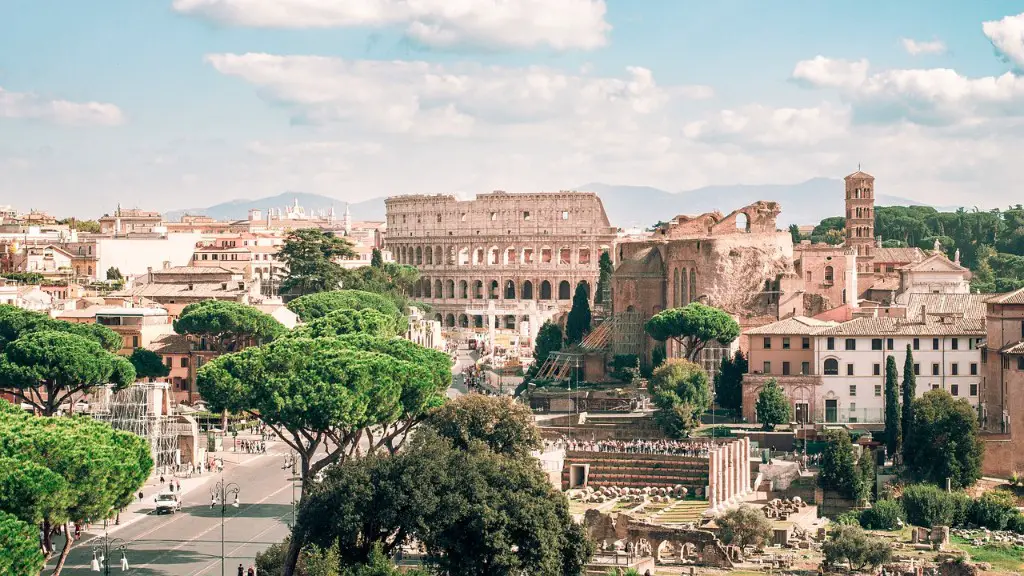Religions and Superstitions
The Ancient Romans had a number of different beliefs and practices that encompassed many aspects of their society. They had a polytheistic religion, in which they worshiped numerous gods who supposedly controlled the fate of their nation. The major gods included Jupiter, Mars, Juno, Minerva, Venus and Neptune. They believed in the power of the gods to appreciate good behavior, punish wrongdoing, and to determine the fate of their people.
As in many ancient societies, the Ancient Roman people also had a variety of superstitions; beliefs that were not rooted in religion but in supposed magic powers. These superstitions included the belief in lucky and unlucky days, the power of charms and amulets, the evil eye, and the power of prophecy. It was thought that by adhering to certain superstitions, bad luck could be avoided or good luck enhanced.
Divination was also a very important part of Ancient Roman culture. This was the practice of interpreting omens and signs by various methods including astrology and augury. Divination was used by the Romans to predict events such as wars and the outcomes of battles, and was thought to have an important influence on the decisions of the ruling classes.
The Ancient Romans had a deeply-rooted belief in the afterlife. It was thought that the souls of the deceased were in the care of the gods, who decided where they were to go on the ‘road to the afterlife’. The souls of those who had led good lives were said to go to the Elysian Fields, while those who had led immoral or unrepentant lives were condemned to the Underworld. It was also thought that souls could be reborn in a new body if they had been particularly virtuous.
The Role of Fate and Destiny
The Ancient Romans believed strongly in the power of fate and destiny to shape their lives. They believed that every individual had a personal destiny that was determined by the gods. The power of destiny was seen as inexorable and inescapable, and individuals were thought to be powerless to influence their destiny.
The role of fate and destiny was very important in Ancient Roman society, as it was thought to influence the destinies of entire nations as well. It was believed that the gods controlled the fate of Rome, and that their actions could determine the success or failure of their people.
The Ancient Romans believed that their good fortune was due to the will of the gods. They made offerings to their gods in the hope that their blessings would bring success and prosperity. They also believed in divine justice, and that if they wronged someone or violated the principles of justice, the gods would punish them.
The concept of fate and destiny was deeply intertwined with the religious beliefs of the Ancient Romans. They believed that their lives and the fate of their nation could be determined by the gods and that this had an important role to play in the lives of their people.
Mythology and Legends
The Ancient Romans had an extensive mythology and a rich oral tradition of tells and legends. Zeus was the king of the gods in their mythology and was the father of many of the other gods. He was said to be the father of Jupiter, the god of the sky, Mars, the god of war, and many other gods.
Other important figures in the mythology of the Ancient Romans included Hercules, who was a hero and the son of Zeus, and the goddess Venus, who was the mother of the Trojan prince Aeneas. The title of “father of the gods” was often given to Saturn, the god of agriculture and the harvest, who was venerated by the Romans.
The Romans also believed in the power of myth and legend to explain the origins of their people, their customs, and their gods. Legends and myths about the founding of Rome and the reign of their prominent leaders helped to shape Roman society and culture.
The mythology of the Ancient Romans was deeply intertwined with their beliefs and values. It was used to explain the natural phenomena that occurred in their daily lives, as well as to explain their own customs and traditions.
Concept of the Human Soul
The Ancient Romans had a belief in the concept of the human soul. They believed that every individual had a soul that was distinct from their physical body. It was thought that this soul was eternal and immortal, and would exist even after the death of the physical body.
The fate of the soul after death was thought to be determined by the moral choices the individual had made while they were alive. It was believed that if an individual lived virtuously and followed the dictates of the gods, their soul would ascend to the Elysian Fields, while if they lived an immoral life, it would be condemned to the Underworld.
The concept of the human soul was a central part of Ancient Roman culture and was intricately linked to their religious beliefs. It was used to explain the nature of the afterlife and the power of fate and destiny to shape the lives of individuals and nations.
Philosophy and Literature
The Ancient Romans had a great appreciation for literature and philosophy, and developed a number of influential theories and ideas that continue to shape modern thought. Epicureanism was a school of thought developed by the Ancient Romans which valued moderation, pleasure and the avoidance of pain, and which proposed that all evil could be avoided by living a virtuous life.
The Stoic school of thought was also very influential in Ancient Rome. This was based on the teachings of the philosopher Zeno and was focused on the notion that human beings should strive for inner peace and tranquility, and should accept their circumstances rather than trying to resist them.
The writings of the Ancient Roman playwright Seneca were also very influential in his time. Seneca wrote on a range of philosophical topics, including justice, duty, contentment, and the importance of living a virtuous life.
The writings of the Ancient Roman poets and authors, such as Virgil and Ovid, had a lasting impact on literature and are still read and studied today. The literature of the Ancient Romans was filled with themes of heroism, duty, and virtue, and served to shape Roman culture and values.
Legacy of the Ancient Romans
The legacy of the Ancient Romans continues to influence our modern society and culture. Much of our modern language, literature, law, government, and architecture can be traced back to the Ancient Romans. Their religious beliefs, superstitions, and concepts of fate and destiny still shape our beliefs today.
Their mythology and legends have been the source of inspiration for many writers, musicians, and artists, and have been used to explain the origins of our people, our customs, and our gods. The philosophy and literature of the Ancient Romans has had a lasting impact on our understanding of morality, justice, and the importance of living a virtuous life.
The Ancient Romans also had a great appreciation for the power and beauty of nature, and their architectural feats, such as the Colosseum, are still impressive today. Many of the beliefs and practices of the Ancient Romans continue to influence our society, and they remain an important part of our history and culture.





